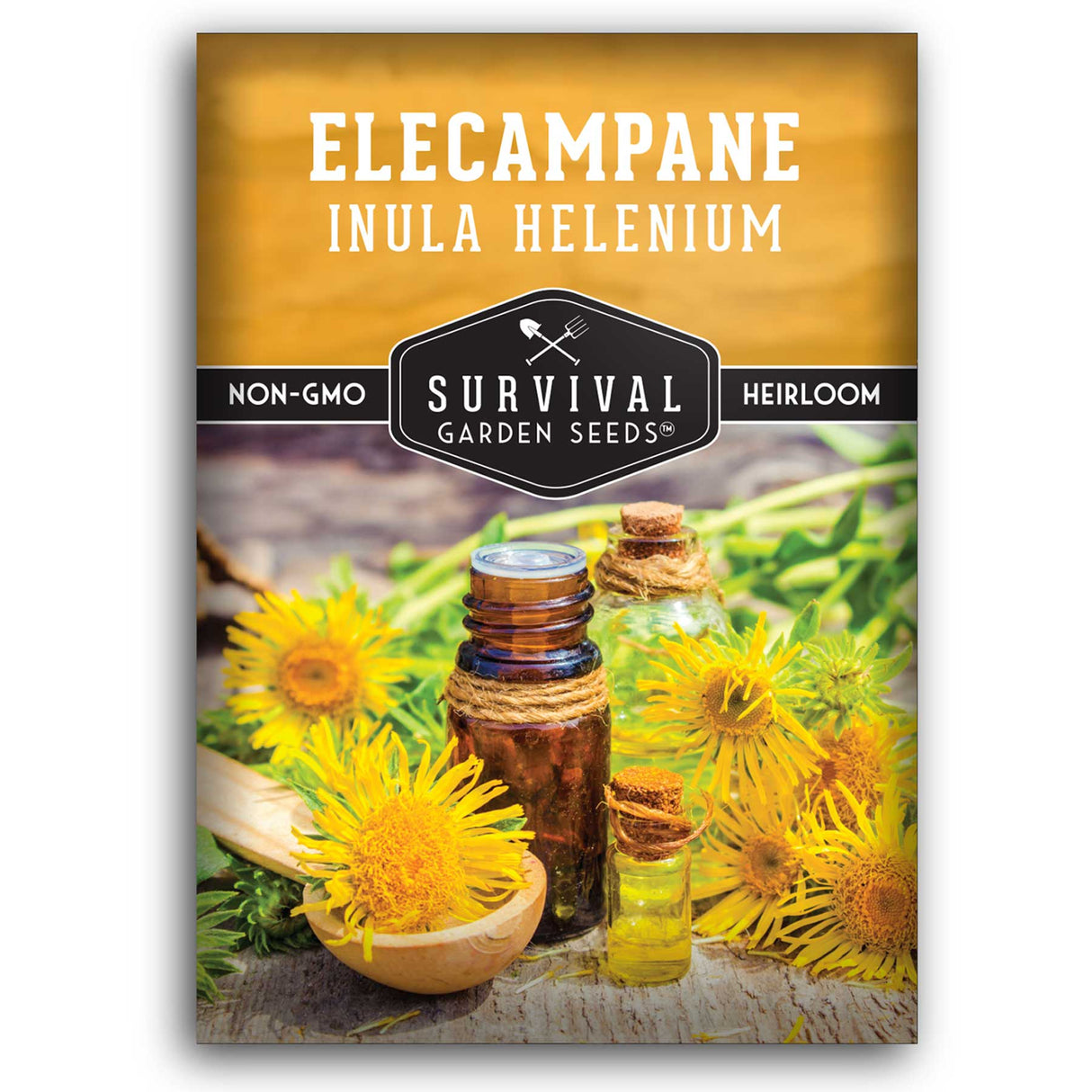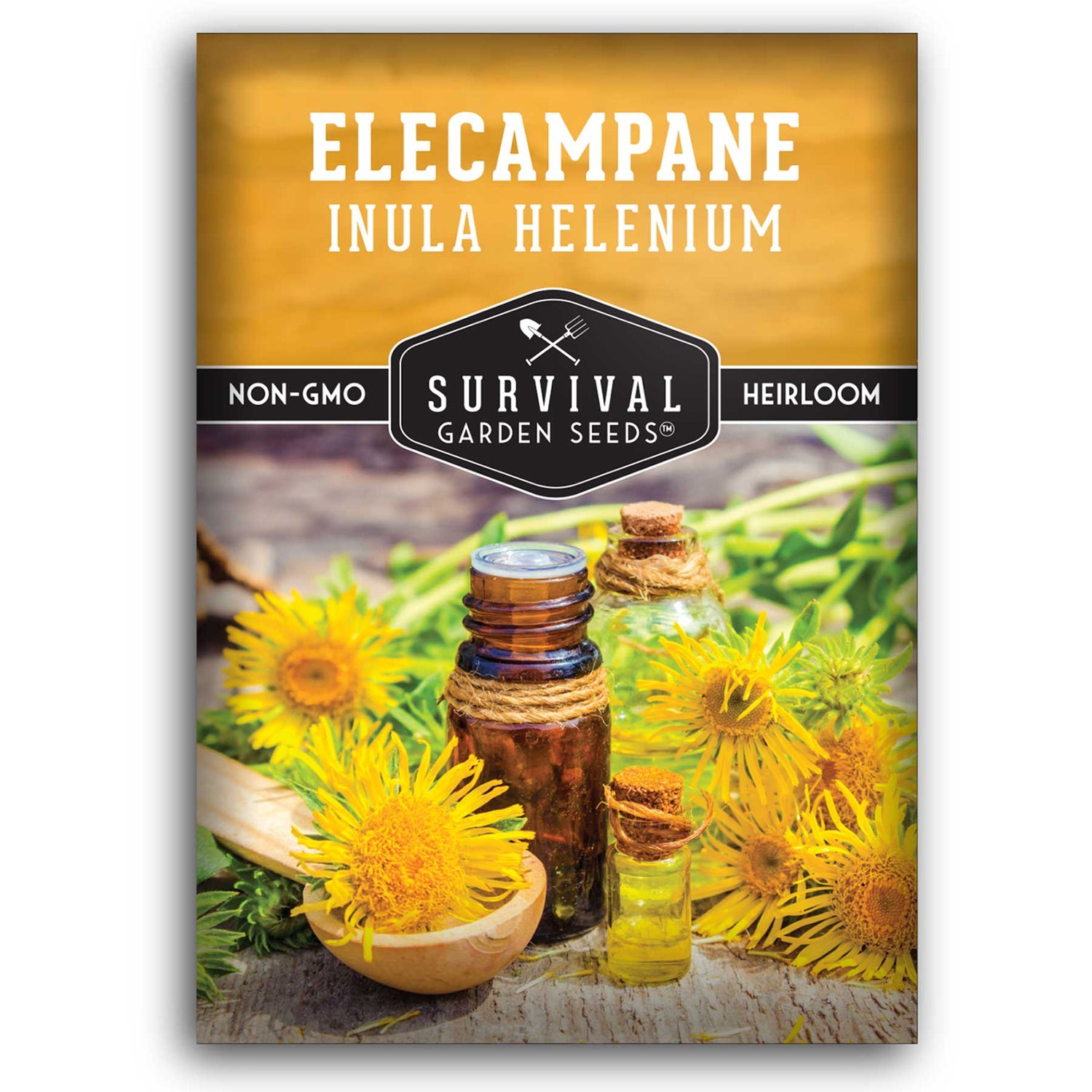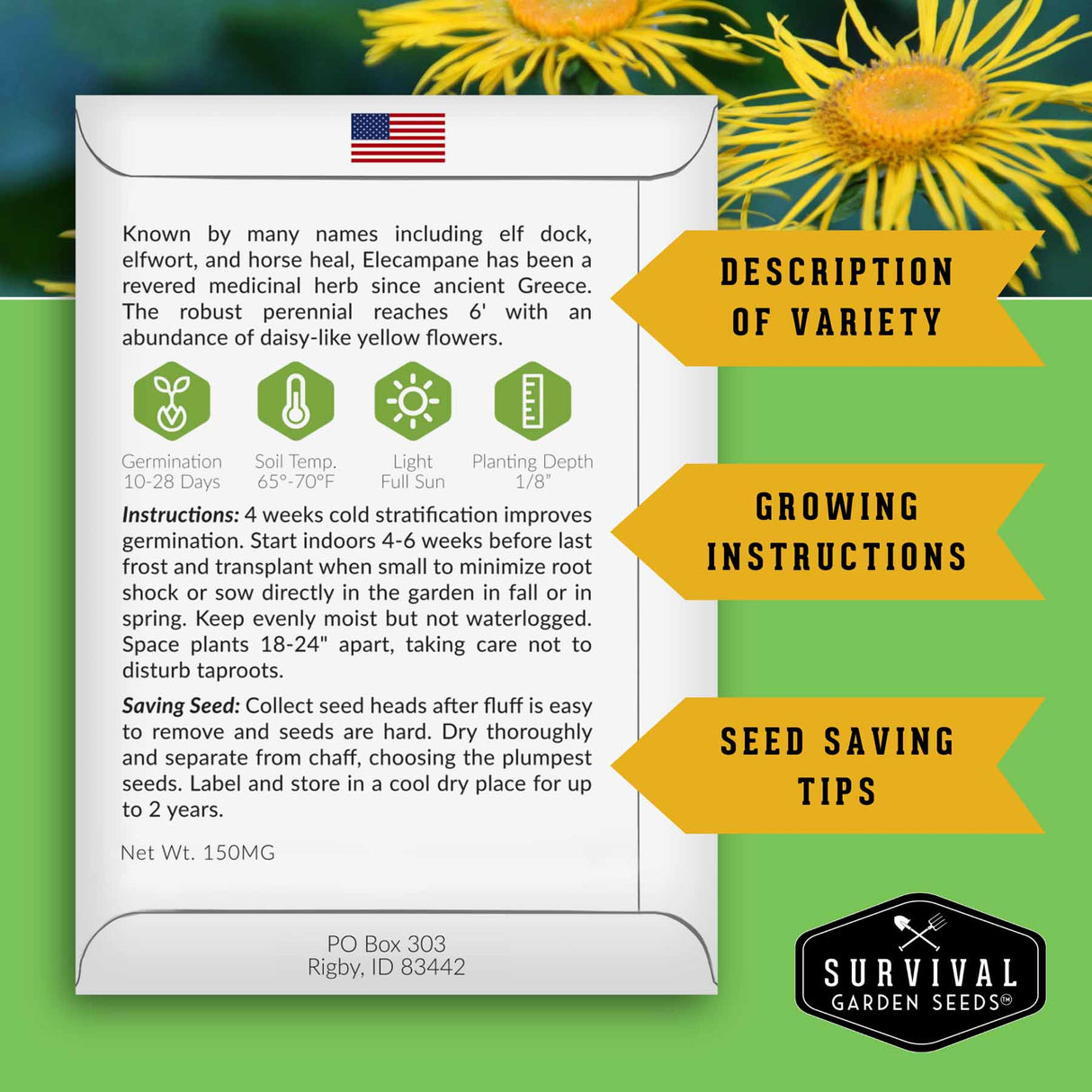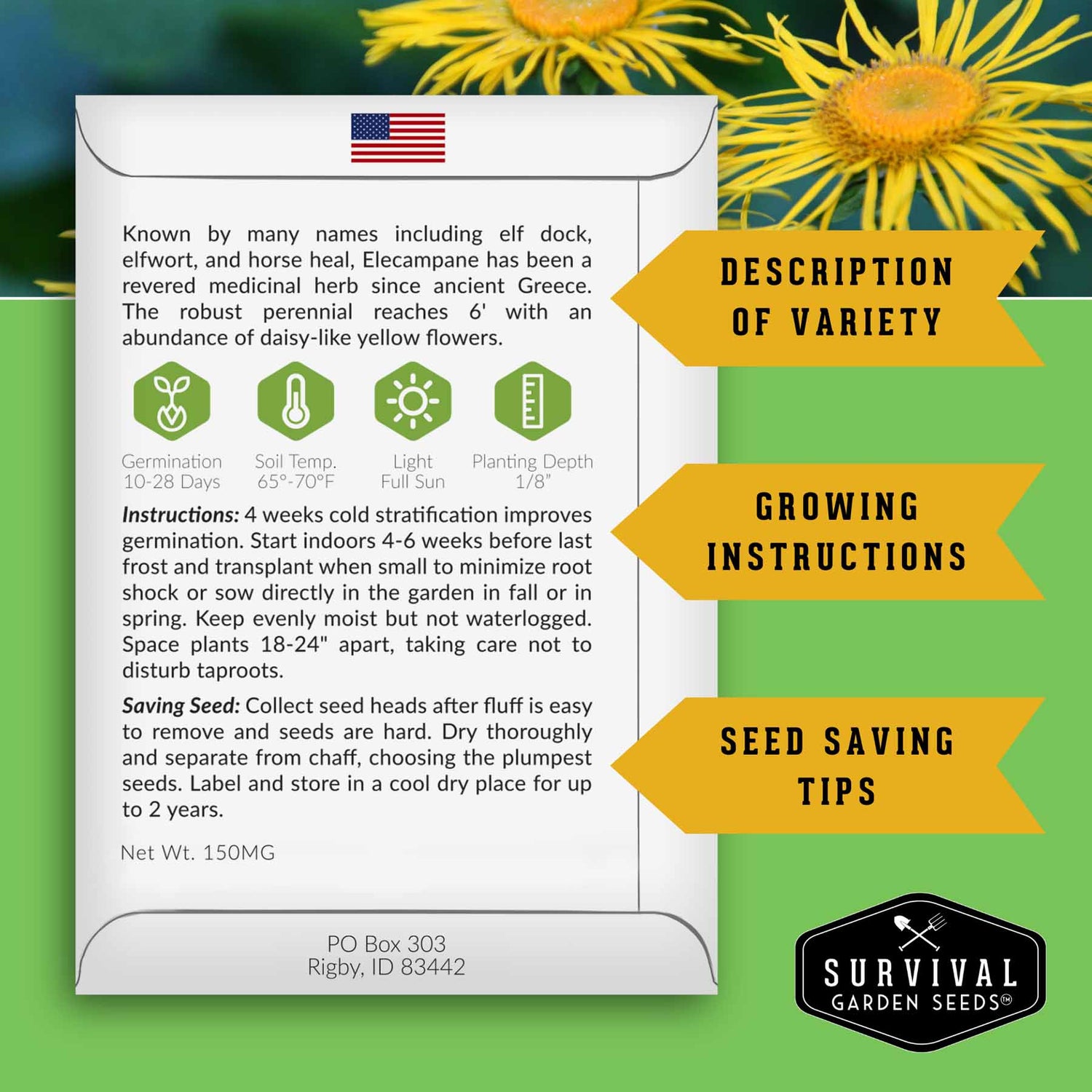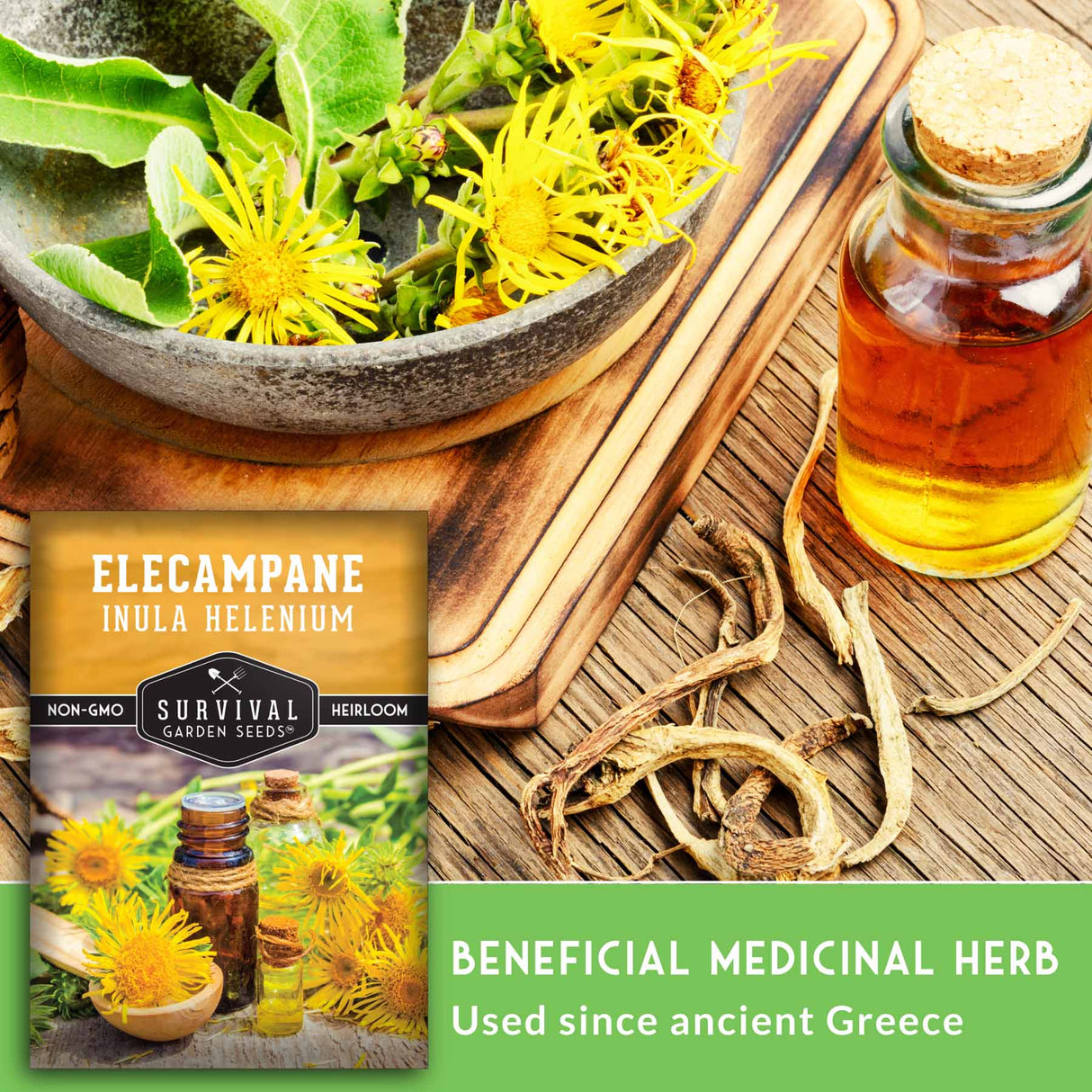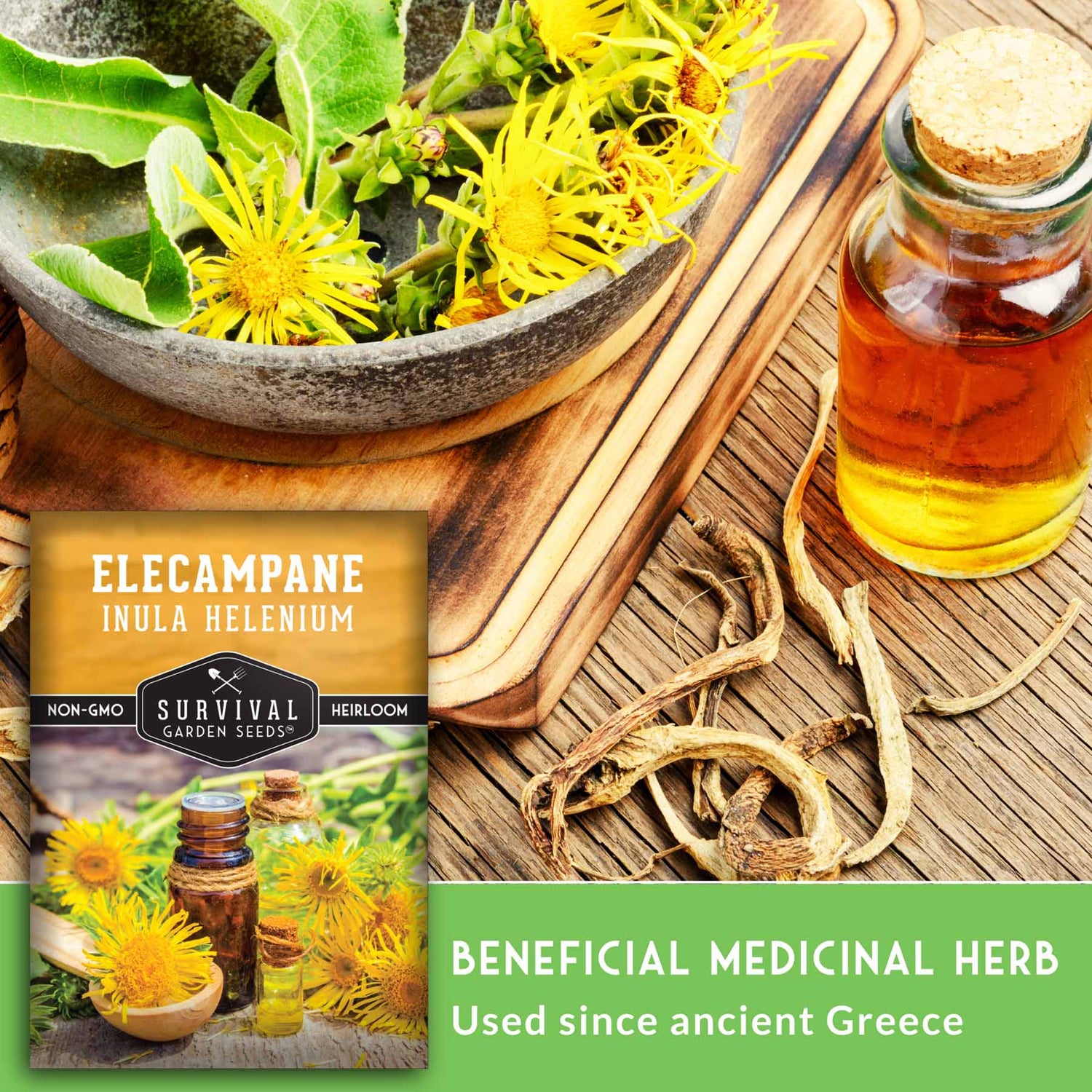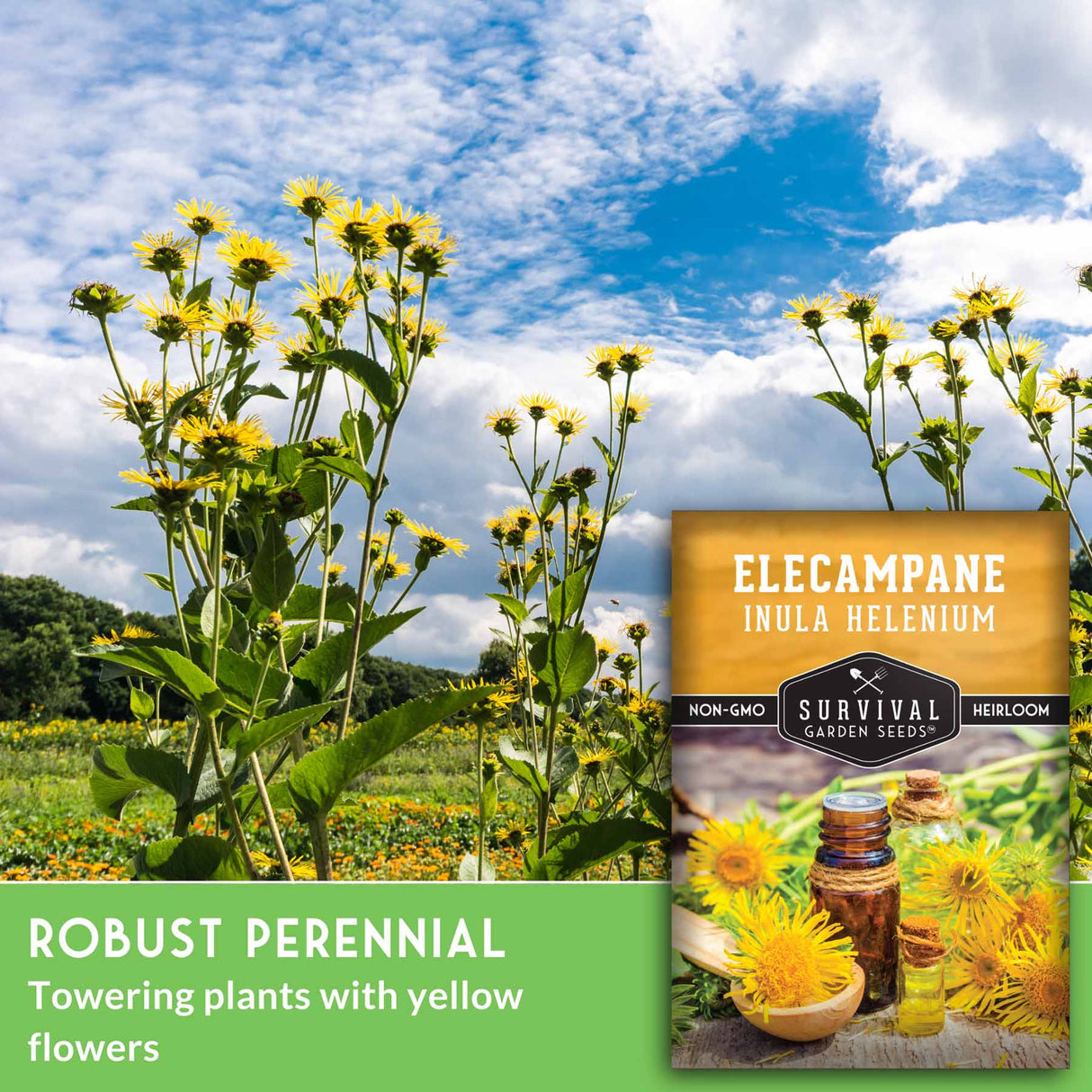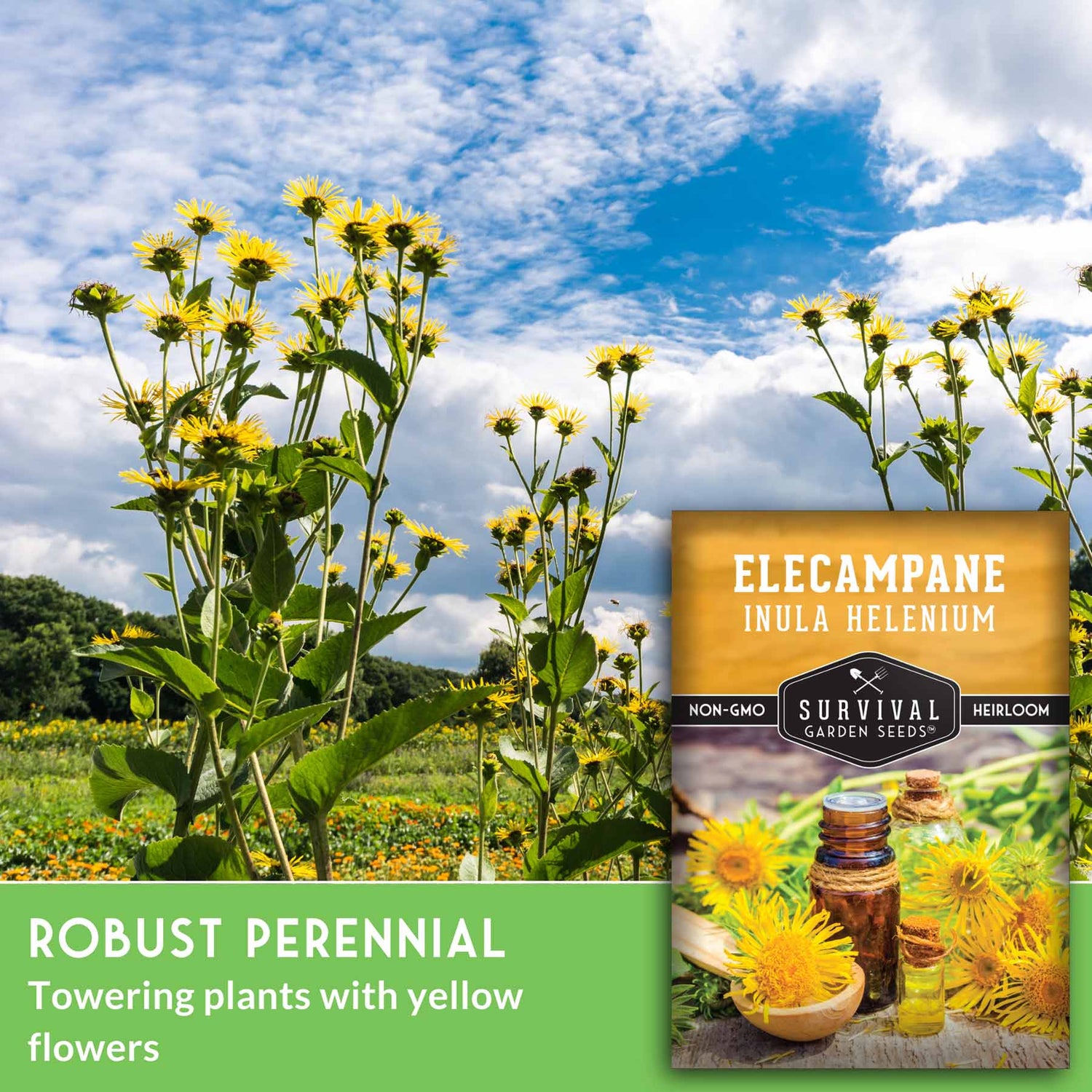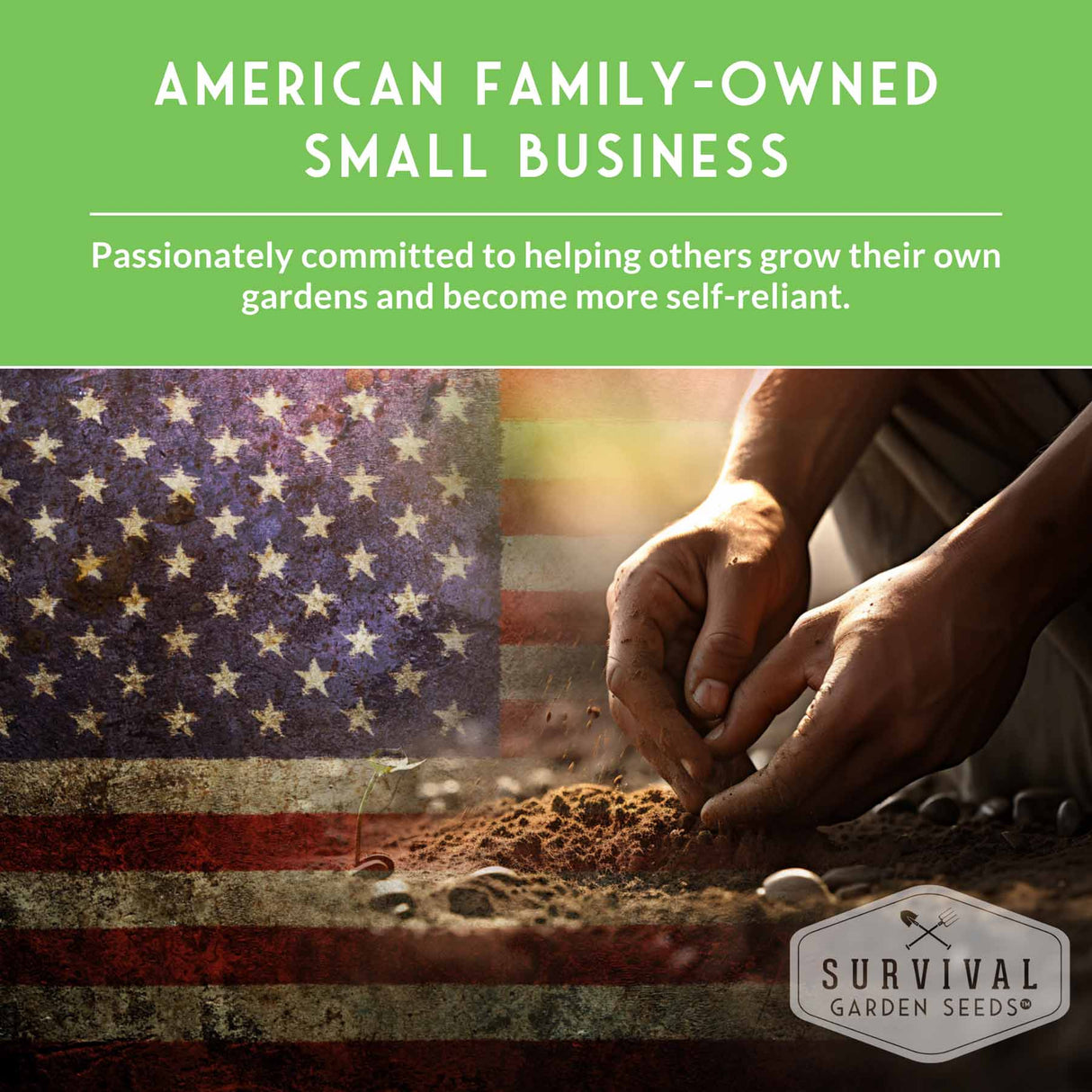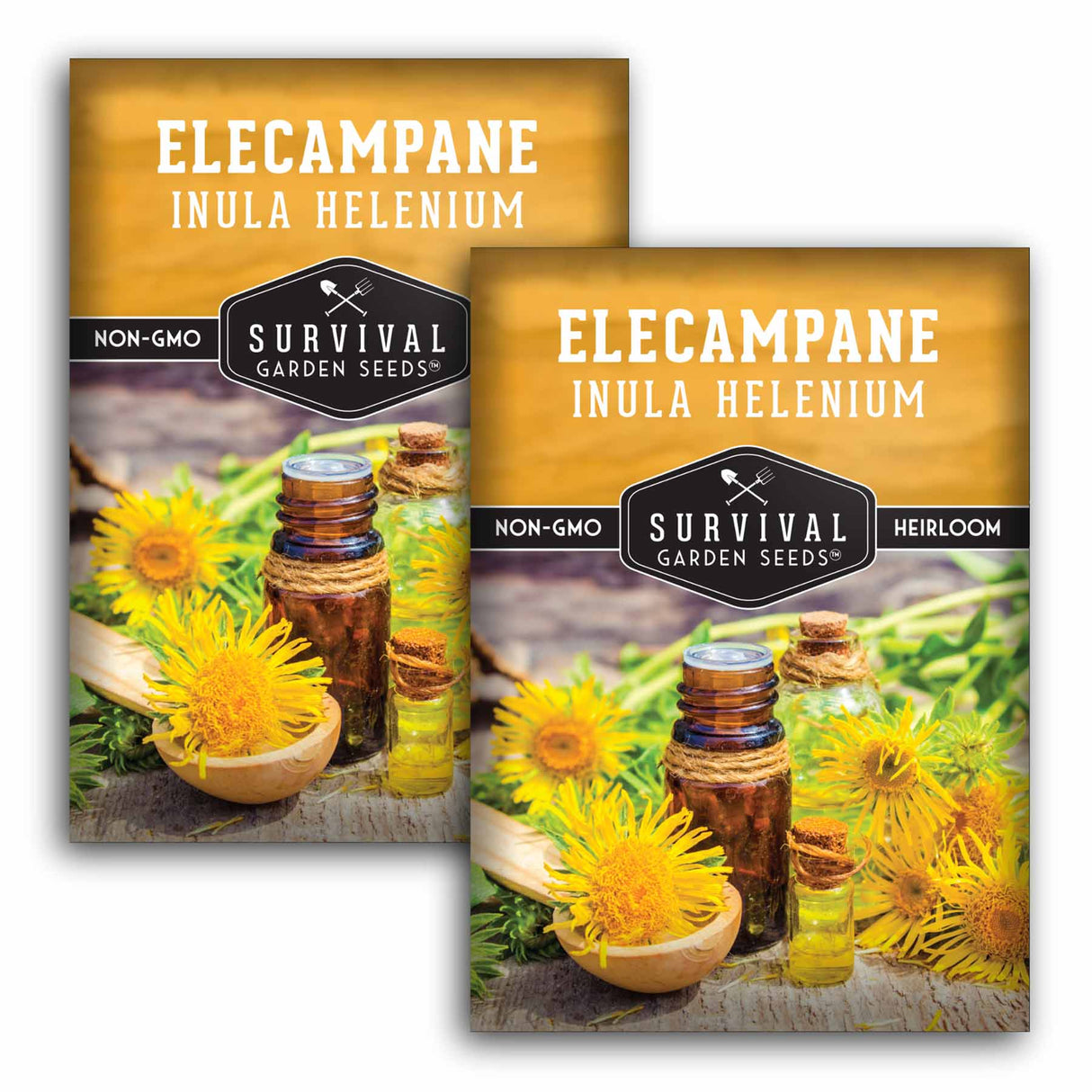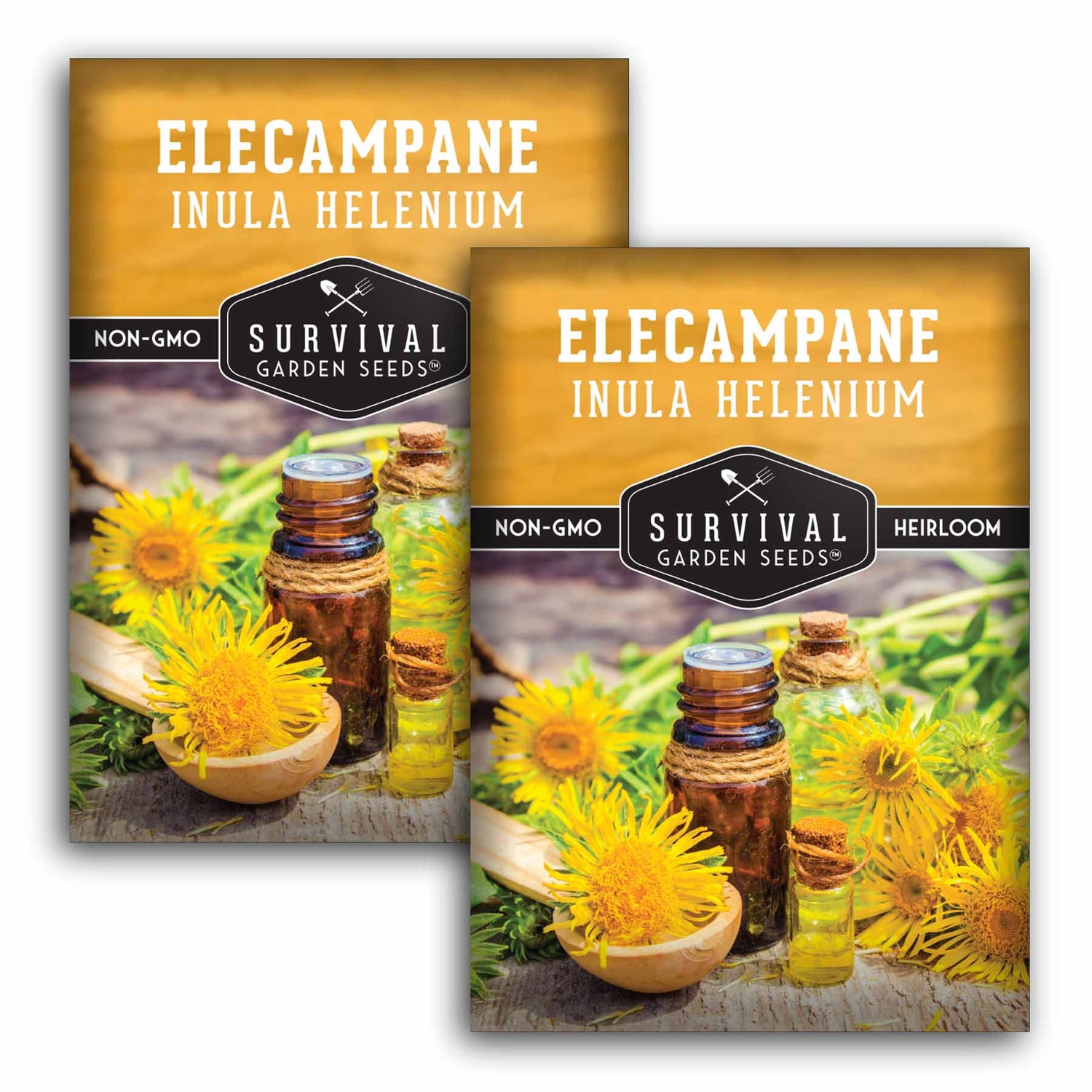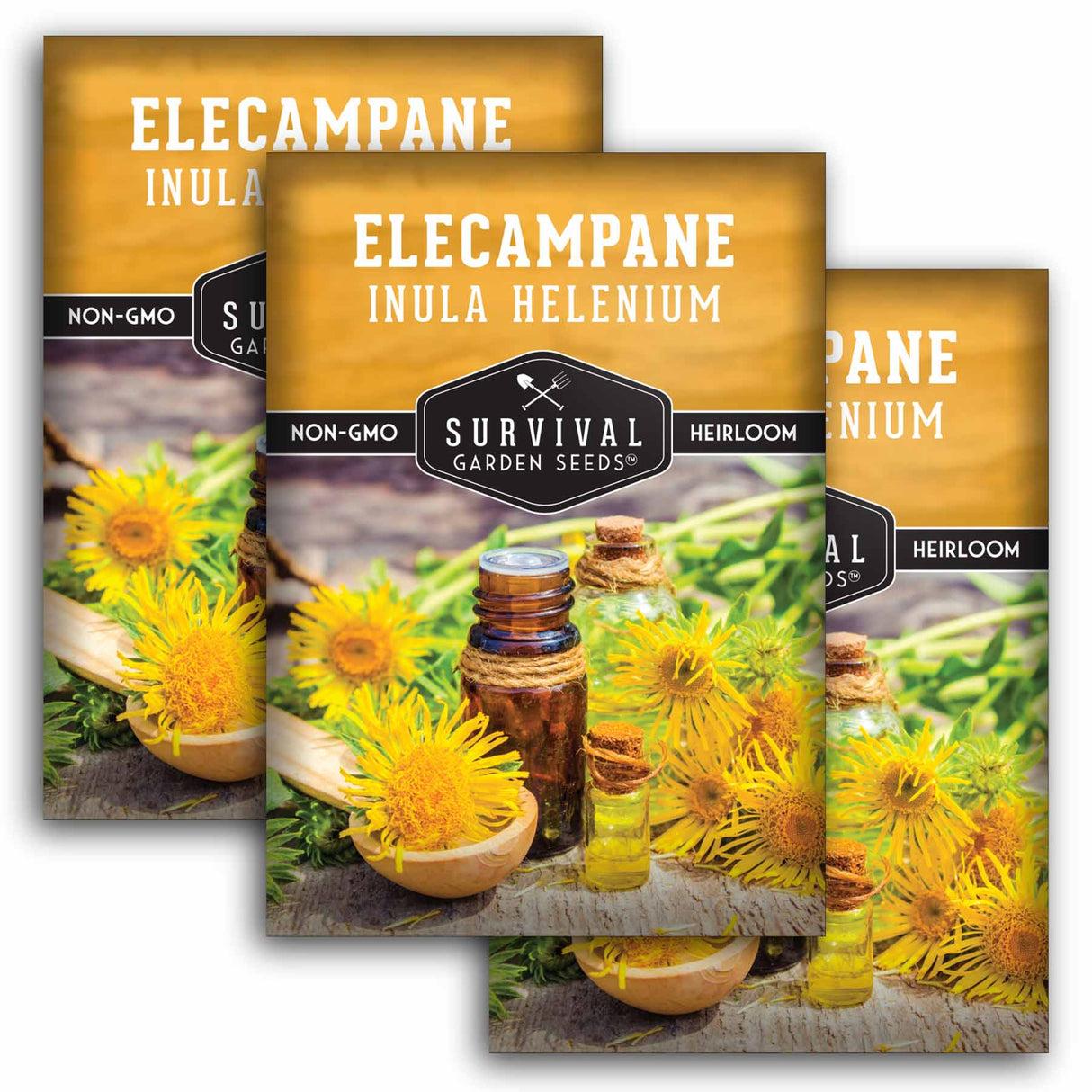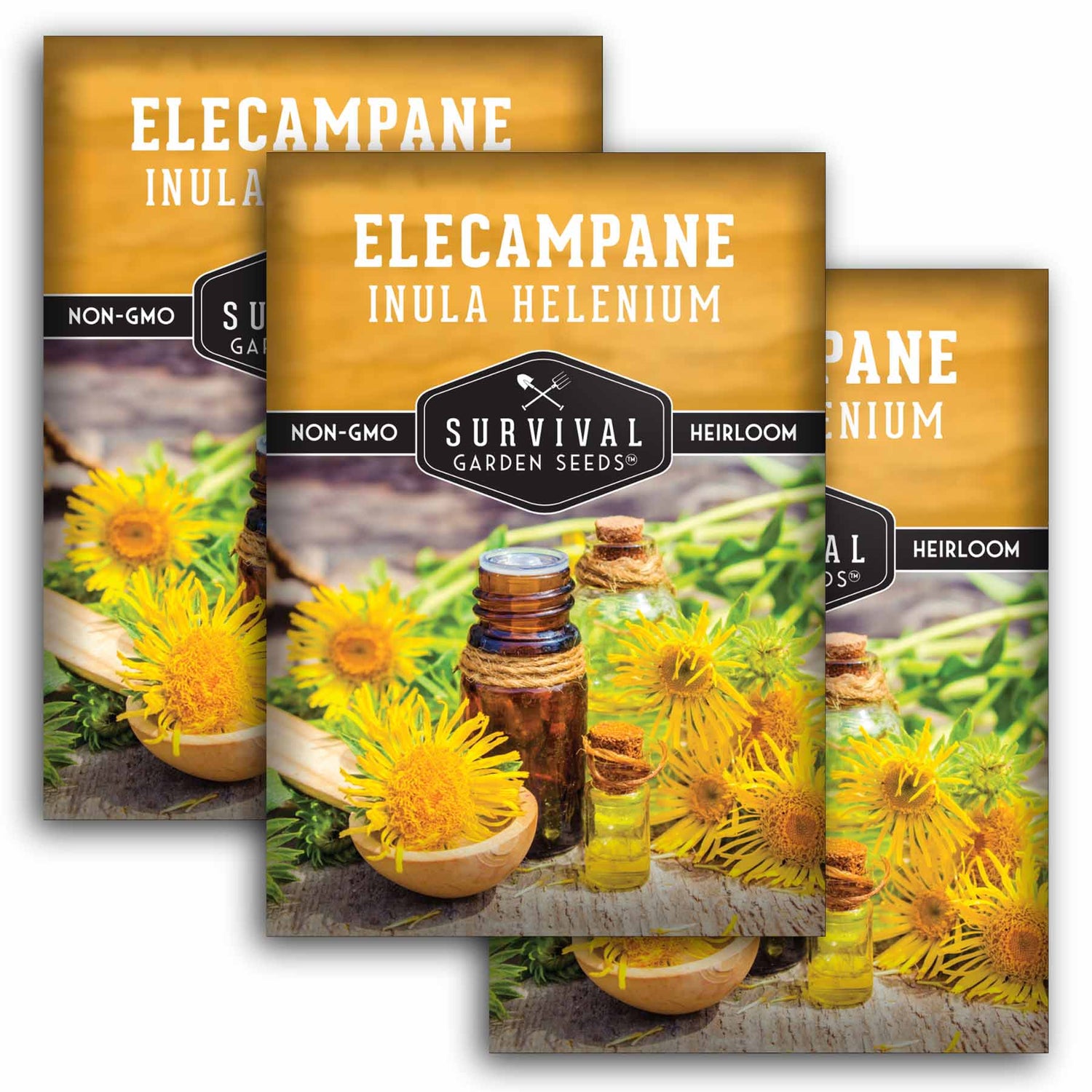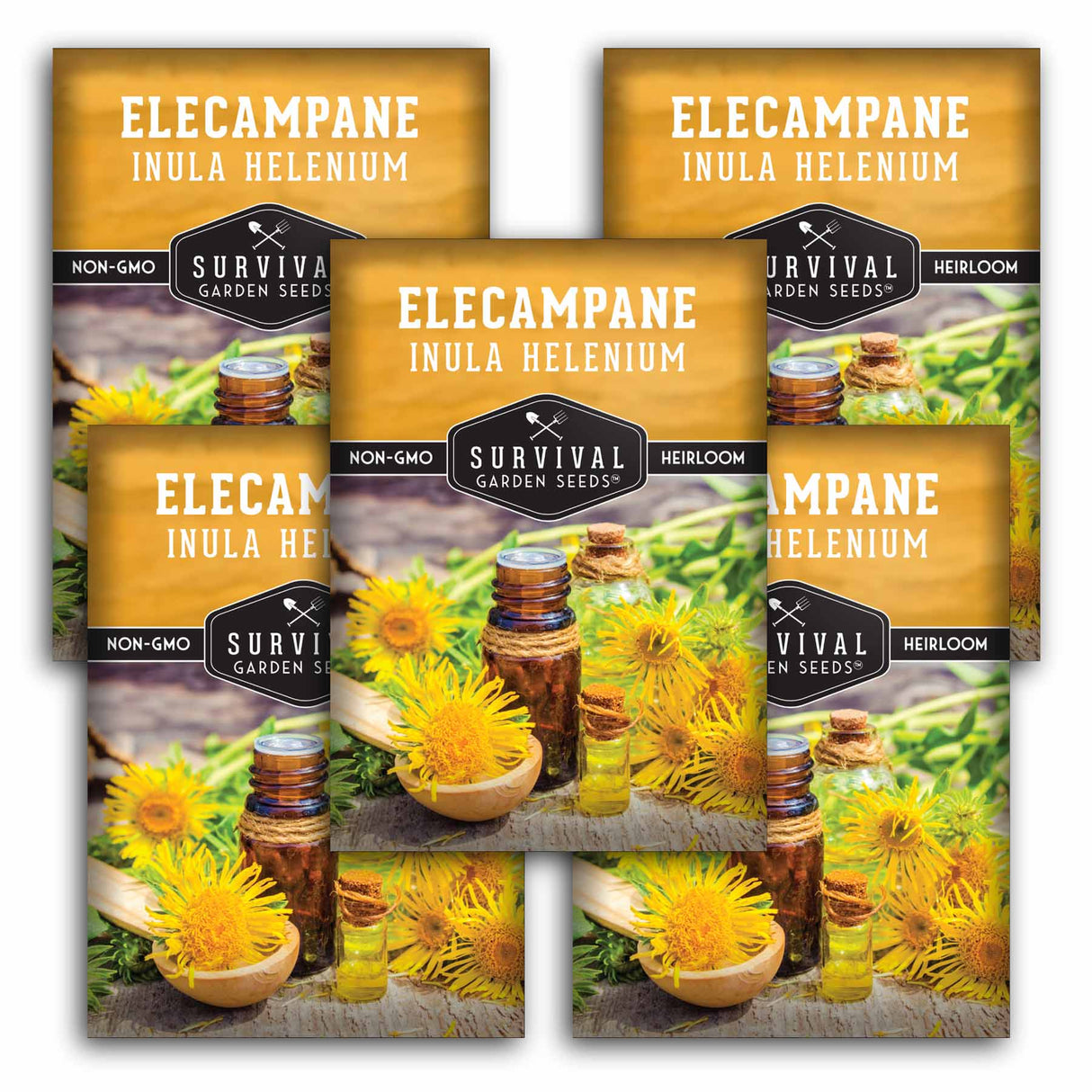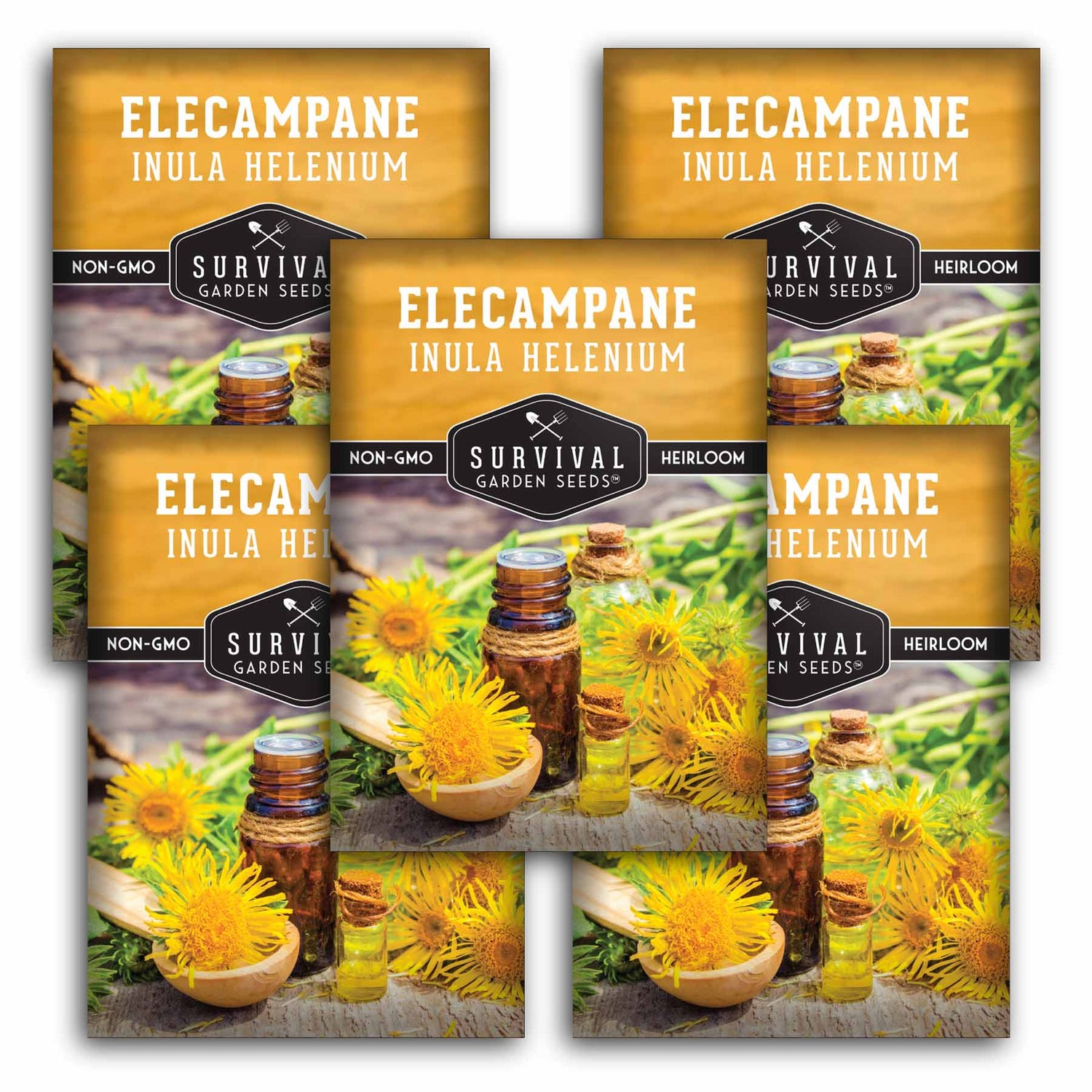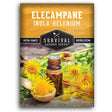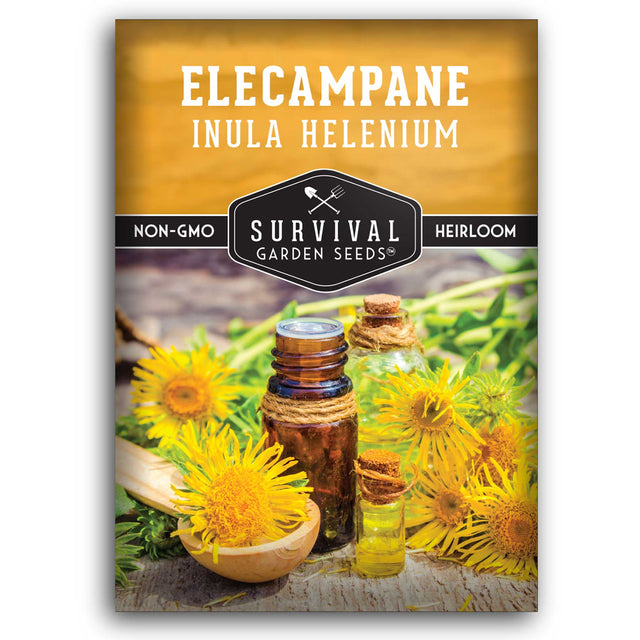Elecampane Seeds for Planting – Inula helenium Medicinal Herb for Wellness Gardens, Pollinators & Natural Dye Projects
Heirloom - Non-GMO - Reliable Germination
Elecampane Seeds for Planting – Inula helenium Medicinal Herb for Wellness Gardens, Pollinators & Natural Dye Projects - 1 Packet is backordered and will ship as soon as it is back in stock.
Couldn't load pickup availability
Bring a time-honored medicinal herb into your homestead or healing garden with Elecampane Seeds from Survival Garden Seeds. Also known as elf dock, elfwort, and horse heal, Inula helenium has been valued since ancient Greece for its aromatic roots, sunny blooms, and practical homestead uses. This hardy perennial offers herbal benefits, pollinator support, natural dye potential, and bold ornamental presence—all from a single, resilient plant.
Reliable, Hardy, and Rich in Tradition
Elecampane is a strong, deep-rooted perennial that grows 4–6 feet tall and 2–3 feet wide, making it a striking addition to cottage-style gardens, wellness plots, and pollinator habitats. Its large leaves and golden, daisy-like flowers attract bees and butterflies throughout summer, while the roots have been used for generations in teas and other herbal preparations. For homesteaders and natural crafters, the roots produce a soft blue dye and the flowers yield a bright yellow, adding creative value to the harvest.
Key characteristics include:
- Traditional medicinal herb with fragrant, aromatic roots
- Tall ornamental growth with bright yellow blooms
- Perennial in USDA Zones 3–9
- Pollinator-friendly flowers that support bees and butterflies
- Roots and flowers suitable for natural dye projects
- Strong performance in full sun and well-drained soil
Why Customers Love Elecampane Seeds
- Brings a classic herbal remedy plant into the home garden
- Offers dual-purpose value as both a medicinal and ornamental perennial
- Provides natural crafting options through root and flower dyes
- Attracts pollinators and enhances biodiversity
- Returns year after year once established
How to Grow
Elecampane germinates best with cold stratification.
- Place damp seeds in a paper towel, seal in a plastic bag, and refrigerate for about four weeks.
- Start seeds indoors 4–6 weeks before the last frost at 65–70°F.
- Keep soil evenly moist and allow several weeks for germination.
- Transplant outdoors after seedlings are well established and frost danger has passed.
- Plant in full sun and well-drained soil, allowing space for mature size.
- Harvest roots in fall of the second year for traditional herbal use.
Harvest & Use
Elecampane roots are commonly used in teas, tinctures, and other herbal preparations. Flowers and roots also supply natural dye materials for homestead crafting. As with any member of the Asteraceae family, individuals with ragweed allergies should avoid use.
NET WT 150 MG
Heirloom Herb Seeds
All of our seeds are open-pollinated, non-GMO, heirloom varieties with tested germination rates
Specifications
Specifications
-
Botanical Name
-
Seasonality
-
Planting Zones
-
Light
-
Soil Temp for Germination
-
Germination Time
-
Planting Depth
-
Plant Size
-
Days to Bloom or Harvest
-
Growing Instructions
-
Seed Saving Instructions
-
Seed Count (approximate)
Payment & Security
Your payment information is processed securely. We do not store credit card details nor have access to your credit card information.
Why Choose Survival Garden Seeds
At Survival Garden Seeds, we believe in preparing today for tomorrow’s peace of mind. That’s why we offer only heirloom, non-GMO, and untreated seeds you can trust to nourish your family and support a sustainable lifestyle. As a family-owned American company, we’re committed to providing seeds that grow strong and true—helping you cultivate health, resilience, and beauty in your garden.

Print Your Own Gift Tags & Envelopes
Spruce up your seed gift with free downloadable print-your-own gift tags & envelopes.
Frequently Asked Questions
What are heirloom seeds?
What are heirloom seeds?
Heirloom seeds are the types of seeds your grandparents grew. These varieties have been passed down from generation to generation. They’re old reliable open-pollinated varieties that aren’t typically grown commercially. Instead, they have a rich history that predates modern breeding techniques.
You can learn more about open-pollinated, heirloom, and non-GMO seeds in our Survival Garden Training blog.
How do I know my seeds are fresh?
How do I know my seeds are fresh?
Every seed packet includes a "packed for" date, and we germination test each seed lot before packaging to ensure you receive viable, high-quality seeds that are ready to grow.
Are your seeds treated?
Are your seeds treated?
No, we do not pre-treat our farmer seeds. All of our garden seeds for sale are untreated, open-pollinated, non-GMO, and heirloom varieties. They are kept in temperature-controlled cooler storage until they are packed and shipped to keep them pest and disease-free.
In what zones can I grow your seeds?
In what zones can I grow your seeds?
The seeds in our collections are specifically chosen from varieties that can be successfully grown from Zone 3 to Zone 10 USDA Hardiness Zones. However, individual varieties have specific needs to thrive in different environments. Each seed pack has optimal temperatures for germination and instructions on seed starting. Consult local frost dates to plan your garden and get the most out of your seeds.
What is the shelf life of these gardening seeds?
What is the shelf life of these gardening seeds?
Most seeds remain viable for 3 to 5 years or longer when stored properly. Check your seed packet for specific varieties. For best results, keep your seeds in a cool, dry place away from direct sunlight and moisture. Store them in an airtight container in a consistent temperature environment—a refrigerator or cool basement works well. Proper storage helps maintain germination rates and extends seed life well beyond the packed date.
Where are Survival Garden Seeds sourced?
Where are Survival Garden Seeds sourced?
The majority of our seeds are sourced in the United States, with a few exceptions when the seed is difficult to source domestically. Whenever we do have to source outside of the US, we ensure our seeds are safe to grow, non-GMO varieties that meet our standards for germination and reliability.

